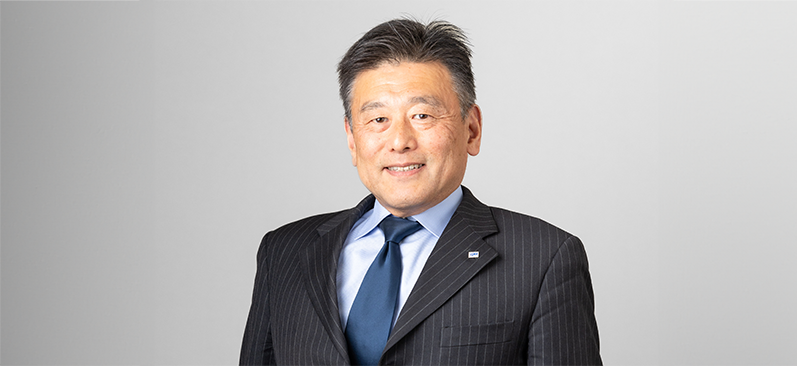Office of the Director General

Upon taking the role of Director General at ISAS
In December 2020, Hayabusa2 successfully delivered samples from asteroid Ryugu to Earth. This event as well as few more subsequent successful performances made it clear to where in the global space science landscape the JAXA Institute of Space and Astronautical Science (ISAS) stands. The role expected of ISAS by our international partners are clearly recognized. Meanwhile, the environment surrounding space science is changing at a rapid pace. These changes bring new constraints inside which we must find fitness and these boundaries vary in time. Yet ISAS must be resolutely prepared to meet expectations.
The most impactful thing that ISAS can do is to fly our medium-size projects and produce eye-opening scientific results. This strength of ours should be securely kept. One should also note that this strength is most effectively demonstrated when implementing projects that open up new horizons of space science, but less so when pursuing details into a specific theme of a particular field.
In addition to focusing on performing impactful medium-sized projects, we should also appreciate that, given constraints that are getting tougher, it is no longer realistic to expect a similar level of results from small-sized projects. A new stance towards small-sized projects would be to make their features crystal clear, narrow down the new elements to only those that are essential, avoid being over-sized, utilize existing products where these are sufficient, and have the space science community lead the development of the narrowed-down new elements.
Carrying out these medium-sized and small-sized projects would enhance the presence of the Japanese science community on the world stage, enabling it to seize opportunities to participate in projects led by institutes overseas. Foreign-led missions may access a part of the solar system that is not reachable by a JAXA-led mission. Contributing a small robotic rover to such a foreign-led exploration mission is a scheme that I would like to introduce newly to our program.
To carry out impactful medium-sized projects successfully, it is essential that the members are given training opportunities for upgrading their expertise before joining a project. We should add a category that has this function to our space science program. In this new category, I would like to see a rapid cycle of completing small projects that include world’s first elements. Substantial in-house manufacturing would apply to these cutting-edge items. This style of performing missions naturally entails a human resource development effect. As the space industry undergoes major growth in its size and diversity, JAXA is more required to be the one to provide technical solutions when asked. This new category should be beneficial for the entirety of JAXA for maintaining the technical expertise of its members. In this context, it should also be mentioned that maintaining the quality of experimental facilities and sites operated by ISAS matters as well.
As a world leader in asteroid exploration, ISAS should lead JAXA’s planetary defence activities. JAXA now has it planetary defence team and is preparing for the close Earth flyby of the asteroid Apophis. Friday, April 13, 2029. This is not an opportunity to be missed.
藤本 正樹(FUJIMOTO Masaki)
